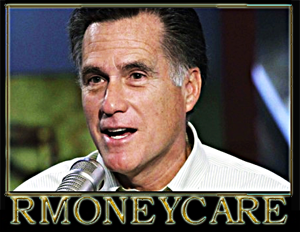“Rmoneycare” is the popular name for FUHCA, The Federal Uniform Health Care Act replaced President Barack Obama’s “Affordable Health Care Act”.
Changes in ACA made by the FUHCA reflected the scandals arising from the revelations in the Guardian that the provisions of the Affordable Health Care Act would nor prevent the NSA from investigation of individual health care records. Objections were raised in particular by the American Management Association that the AHCA could be used under the Freedom of Information Act to disclose the incidence of Paranoid Neurosis, a common affliction among executives.
The provisions of the FUHCA include:
- permitting health insurers to charge for coverage based on patients’ medical histories, gender or use substance covered by the controlled substances policies of the federal government.
- exemption from anti-trust laws to endure profit margins will support the expanded health care services under Rmoneycare.
- encryption of all medical records in Linear A, a language that has resisted decipherment aince the fall of the Tower of Babel.
- establishing a National Healthcare Workforce Commission to be composed of individuals from religious institutions, charities devoted to health care, and health care providers who will assess healthcare needs and make recommendations to congressional leaders
- requiring most employers to provide coverage for their workers or accept a subsidy from the federal government of 8%
- restrictions on abortion coverage in any insurance plans offered via Rmoneycare.
- restrictions on use of insurance plans offered via Rmoneycare to pay for any immoral activities or provide health care for illnesses resulting form immoral behavior.
- a restriction of Medicaid to exclude low-income Americans who have not shown a willingness to work for wages adequate to bring them to 133% of the Federal Poverty Level .
- a central health insurance exchange where the public can compare policies and rates
- a 5.4% tax exemption on individuals whose adjusted gross income exceeds $500,000 if they can demnonstrate they are paying healthcare benefirt for their household servants.
- reductions in projected spending on Medicare of $400 billion over a ten-year period[4]
- exclusion of families not covered by the Tax Equity for Domestic Partner and Health Plan Beneficiaries Act[11][12]
- imposing a $50,00 limit on contributions to flexible spending accounts (FSAs), which allow for payment of health costs with pre-tax funds, to pay for a portion of health care reform costs.[3][15]
